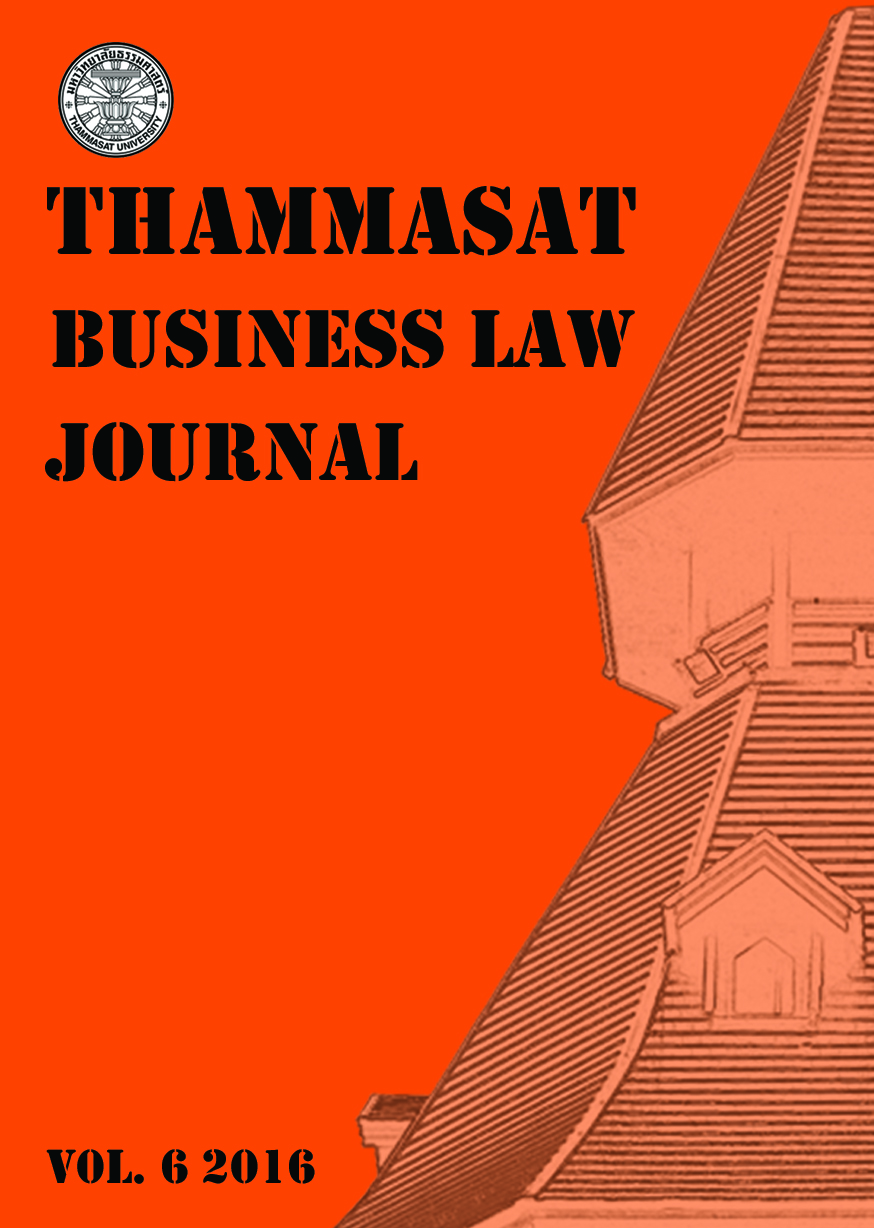LEGAL PROBLEMS ON LABOUR PROTECTION ACT BE.2541 FORTRANSPORTING NGV BY TRUCK IN ASPECT OF WORKING HOURS
Main Article Content
Abstract
Natural Gas for Vehicles (NGV) is an alternative energy that is selected to be an alternative fuel for vehicles. NGV is a clean, safe fuel and inexpensive. As a result, it is a favorable choice to support and substitute other fuels. Accordingly, the Thai government has promoted all sectors to use NGV as an alternative fuel for vehicles.
However, while pipeline networks normally deliver natural gas, which are located in central Thailand, the demand for consumption of NGV is widespread around the country. Transporting NGV to all stations is situated out of the pipeline areas, which shall be served by trucking. Trucks and trailers will deliver NGV from their mother stations, which are located at pipeline areas to daughter stations, located outside of the pipeline areas.
On-time delivery is the key factor of transporting NGV. If a truck cannot deliver th e gas to any daughter station before the gas is depleted, the shortage of gas will trigger an immediate demand for NGV from the consumers. Therefore, the network and system of transportation must be efficient to deliver gas within the specified period.
However, transporting NGV has its special characteristics that are different from any other mode of transportation. One of them is its transport per round trip. Since there is no storage tank for NGV stations, a trailer become a special kind of storage tank, is used to distribute NGV at the daughter station to vehicles. All trailers must be circulated efficiently by running per round trip. However, distances between the mother stations to daughter stations vary. Some routes are short, but most of them are too long to drive within the period prescribed by law.
As required by Ministerial Regulation No. 12 B.E. 2541, which is issued by virtue of Labour Protection Act B.E. 2541, this regulation defines hours of work and rest period for all kinds of road transportation. A driver is permitted to work up to 8 hours per day and can work overtime for not more than 2 hours. Moreover, an employer must specify to their employees their start time and end time of work, which is called “time for commencement and ending of work”. On the other hand, if the transportation of NGV is grouped as transportation for hazardous substance, the driver will be restricted to work not more than 7 hours per day without overtime as required by Ministerial Regulation No. 2 B.E. 2541.
There are various problems concerning the application of the Labor Protection Act B.E. 2541 to the transportation of NGV. Firstly, whether the transportation of NGV should be classified as hazardous work or normal work. The answer would have an effect on the working hours of drivers. Secondly, due to its unique characteristics of transporting NGV, such as the distances between mother and daughter stations, systems of circulation of trucks and trailers, time spent for loading, unloading and stands by for the gas, and hours of work designated by Ministerial Regulation No. 12 clause 2 is not suitable for transporting NGV if the law does not separate driving time and working hours. Thirdly, in transporting NGV, the time of commencement and ending of work for each working day required by Clause 2 of the Ministerial Regulation No. 12 cannot be specified since nobody knows exactly the time of start and ending of work for transporting NGV. As the nature of the work is different from other land transportation, special regulations are required
However, these problems can be solved by adopting the concepts in international law and foreign law to apply to this kind of transportation in Thailand. This thesis proposes that the International Labor Convention, EU regulations and US law for road transportation regarding working hours, driving time and rest periods of transporting NGV should be used as a model.
Firstly, ILC, EU regulations and US law have no restriction on working hours for transportation of hazardous substance, but they are strict on safety standards, such as qualification of drivers, trucks and safety equipment. Secondly, ILC, EU regulations and US law separate driving time from working hours, and there are clear provisions on the working hours and driving time obviously to apply for transporting NGV. Thirdly, ILC, EU regulations and US law do not require employers to specify the time of start and ending of employee’s work in each day.
Therefore, ILC, EU regulations and US law should be taken into consideration to solve the problems of NGV land transportation of Thai law. If possible, the criteria of ILC, EU regulations and, US law should be modified to apply to both NGV transportation and other kinds of transportation in Thailand.
Article Details
References
“Where does natural gas in Thailand come from?” http://www.scan-inter.com/en/node/42
Thailand Energy Business Department. “List of NGV stations” http://www.doeb.go.th/info/data/datangv/station_ngv.pdf
Scan Inter. “Vehicle for transporting NGV” http://www.scan-inter.com
Labour Protection Act B.E. 2541
Ministerial Regulation no. 12 B.E. 2541
Land Transportation Act B.E. 2522
Ministerial Regulation no. 2 B.E. 2541
International Labour Convention No. 67
International Labour Convention No. 153
International Labour Recommendation No. 161
Regulation (EC) no. 561The European Parliament and the Council of the European Union (EU) of 15 March 2006
Directive 2002/15/EC The European Parliament and the Council of the European Union (EU) of 11 March 2002 Part 395 and 397
Code of Federal Regulation title 49 transportation, subtitle B other regulation
relating to transportation, Chapter III Federal Motor Carrier Safety Regulations
บทสัมภาษณ์นายอาณาธร สมิตะโธิน ส่วนแผนและบริหารการขนส่ง ฝ่ายปฏิบัติการก๊าซธรรมชาติ สำหรับยานยนต์ วันที่ 6 พฤษภาคม 2558 ณ สำนักงานใหญ่ บริษัท ปตท. จำกัด (มหาชน)
(Interview session with Mr. Arnathorn Samitayotin as Planning and Managing Department of Natural Gas for Vehicle Operation, PTT Public Company Limited)
PTT NGV Logistics Road Safety Management Standard (Manual)


